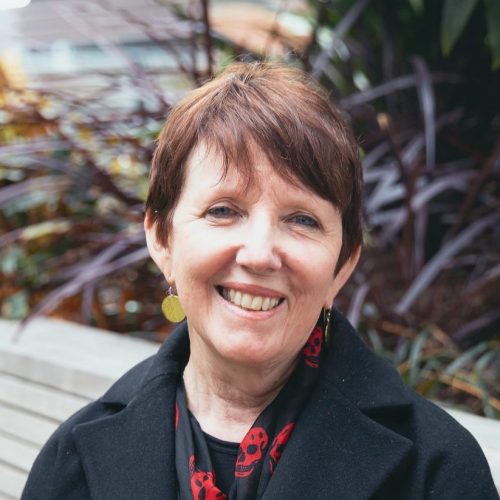She is currently a VC Professorial Fellow and from 2016-2020 was an NHMRC Senior Principal Research Fellow. Between 2017-2020 she was RMIT’s Urban Futures Enabling Capability Platform Director, and between 2011-2016, she was a Redmond Barry Distinguished Professor at the University of Melbourne and Director of the McCaughey VicHealth Community Wellbeing Unit.
For over two decades, Billie and a multi-disciplinary research team have been studying the impact of the built environment on health and wellbeing. From 2014-2020, she led an NHMRC Centre of Research Excellence in Healthy Liveable Communities and worked closely with local, national and global policy-makers and practitioners in Perth, Melbourne, Brisbane and nationally. Since 2014, she has a Chief Investigator on the Australian Prevention Partnership Centre, responsible for working with sectors outside of health. She led its National Liveability Study, which initiated the Australian Urban Observatory https://auo.org.au that maps and disseminates policy-relevant urban liveability indicators for Australia’s 21 largest cities available for use by local government and the community.
She has published over 400 articles, book chapters and reports, and by citations, is ranked in the top 1% of researchers in her field globally. She is an Honorary Fellow of both the Planning Institute of Australia and the Public Health Association and a Fulbright Scholar. In 2016, she was awarded an NHMRC Elizabeth Blackburn Fellowship as the top ranked female fellow in public health in 2015; and in 2020, she was awarded the Town and Country Association’s Sir James Barrett Memorial Medal.
She is a member of the Victorian Office of the Government Architect Design Review Panel, the Victorian Planning Authority’s Precinct Structure Plan Review Committee and Melbourne Water’s Liveability Panel.
She is on the Editorial Boards of Social Science and Medicine and Social Science and Medicine – Population Health; and has been a Guest Editor on built environment and health special issues for several journals including Preventive Medicine and the Journal of Transport and Health. She regularly serves on NHMRC Grant Review Panels and is a grant reviewer for the Australian Research Council.
She is regularly invited to contribute to projects with global impact including:
WHO’s Global Report on Urban Health http://who.int/kobe_centre/measuring/urban-global-report/en/
The Lancet Series on Urban Design, Transport and Health (lead of the first paper in the series): http://www.thelancet.com/series/urban-design
The ENABLE London project, an evaluation of the health and wellbeing impacts of people relocating into social and affordable housing resulting from the London Olympic Village legacy project http://www.enable.sgul.ac.uk/
CURRENT RESEARCH PROJECTS
- The Australian Prevention Partnership Centre which funded The National Liveability Study that developed the Australian Urban Observatory https://auo.org.au and currently funds https://preventioncentre.org.au/our-work/research-projects/benchmarking-monitoring-and-valuing-the-healthy-liveable-city/
- The ARC-funded The High Life study
- The NHMRC/UK RI funded JIBE project


